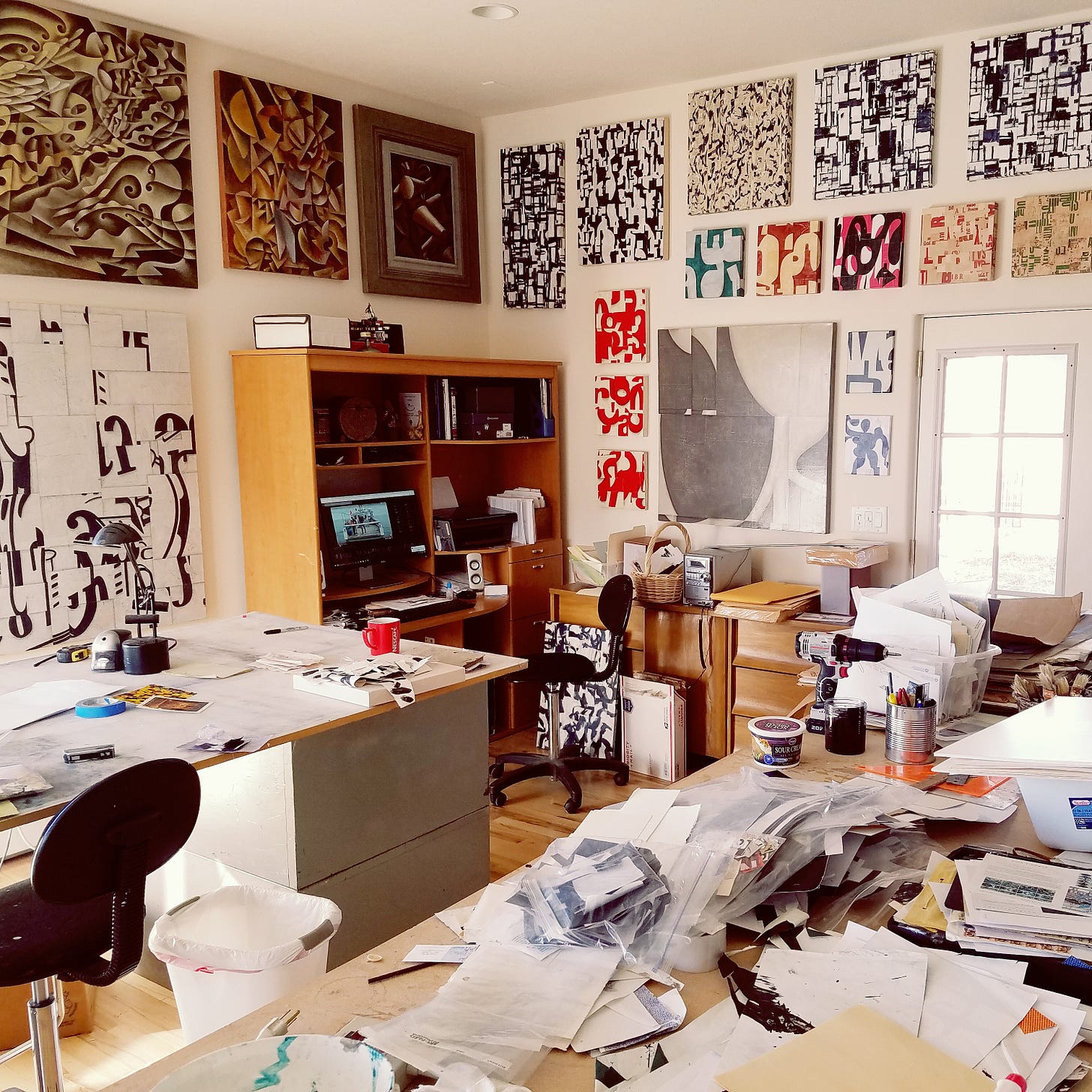Things Accumulate: The Art of Slow, Steady Growth
As artists, we must come to embrace the concept of accumulation. Over time, whether we realize it or not, things inevitably accumulate. Ideas, materials, skills, failures, successes—they all pile up. The key is not only to accept this process but to embrace it, plan for it, document it, and keep it organized. At the outset of any creative journey, it’s hard to envision just how much will be built upon over time. In the beginning, it feels like a small, isolated effort, but slowly and steadily, that small effort grows and expands.
At the beginning, we often feel insignificant and unaccomplished. It's natural to feel this way when we’re at the start of something, especially when comparing ourselves to the great masters who came before us. How can we ever achieve what they’ve accomplished? They seem so far ahead, so accomplished. But what we often fail to recognize is that their greatness didn’t appear overnight. It was the result of countless small moments of accumulation. Day by day, year by year, they worked. They honed their craft. They amassed skills, insights, and experiences through practice. They built a reputation. They gathered knowledge and wisdom. Slowly, imperceptibly at first, they grew. The work multiplied. And before they knew it, they had a vast body of work, deep and rich. But it wasn’t magic. It was simply the result of accumulation: slow, steady, and continuous.
The secret, then, is to think of your creative journey as a single, unified body of work, a continuous thread that ties together every moment, every project, every failure, and every success and the acquired memory, insight, adjustments and wisdom. Each step you take, no matter how small, contributes to the whole. The key is to understand how everything fits together, how it relates to everything else, and to see your path as an unfolding trail—each moment leading into the next, creating a larger and more cohesive narrative. The masters didn’t get where they are by focusing solely on individual works; they saw their entire life as a canvas, with each stroke building on the last.
This perspective requires patience and vision. As you move forward in your work, it’s crucial to stay organized. Lay out and document your path as you go, keeping track of your progress and reflecting on how it fits into the bigger picture. Look back on your previous work, your trials, your experiments. What have you learned? What themes recur? What directions have you explored? As you analyze your journey, think about where you are headed and the possibilities that lie ahead. Make notes, ask questions, and think critically. The answers might not come immediately, but the act of questioning is an essential part of the process. The photographic documentation, the notes, the daily journaling build a map that shows you where you have been and suggests where you are headed.
You won’t always know what comes next, and that’s okay. There will be moments when you hit a wall, when you reach an impasse or feel uncertain about what to do next. These moments are not failures; they are part of the process of accumulation. They are the places where your work grows, where new ideas take root and new branches to explore are discovered. It’s in those moments of uncertainty that you will stretch your boundaries, learn to trust your intuition, and move forward.
Your life, in its entirety, is your art. The way you approach each day, the choices you make, and the effort you put into your craft—these are all part of your artistic process. The old masters understood this, and they lived it. They embraced the slow, incremental growth that comes with years of dedication. They were patient, and they persisted. They knew that no single piece or moment, though it might be a mile marker, could define their entire journey. It was the accumulation of all their work, their experiences, and their learning, taken as a whole, that created the depth of their legacy.
So, begin now. Understand that every step you take matters, no matter how small or seemingly insignificant. Your work, like theirs, will grow and evolve with time. Stay organized, stay focused, and keep moving forward. With each brushstroke, each note, each word, you are building something far greater than the sum of its parts. And just like the masters who came before you, your lifetime of work will one day be viewed as a complete and cohesive whole—a testament to the power of accumulation. Be patient, be persistent, and continue. Your art will grow as you grow.




I suspect that Bacon didn't clean up his studio because he was out getting drunk most of the time
He was known to drink in many places in London, including:
Soho: Bacon was a regular at many Soho pubs and clubs, including The Gargoyle Club, The French House, and Charlie Chester's Casino. He also spent time at the Colony Room, a small, shabby space owned by Muriel Belcher that was a popular spot for afternoon drinking after pubs closed.
The Golden Lion: A favorite haunt of Bacon's on Dean Street.
The French pub: A gathering place for artists and intellectuals run by Gaston Berlemont.
Wheeler's: Bacon's favorite seafood restaurant on Old Compton Street.
The Ritz: A grand hotel where Bacon would drink champagne.
The Iron Lung: A basement where misfits and conmen would gather to drink.
Arab dens: Tough-looking men would sometimes sense Bacon's appetite for violence.
Thank you for this today, Cecil! It really resonates.